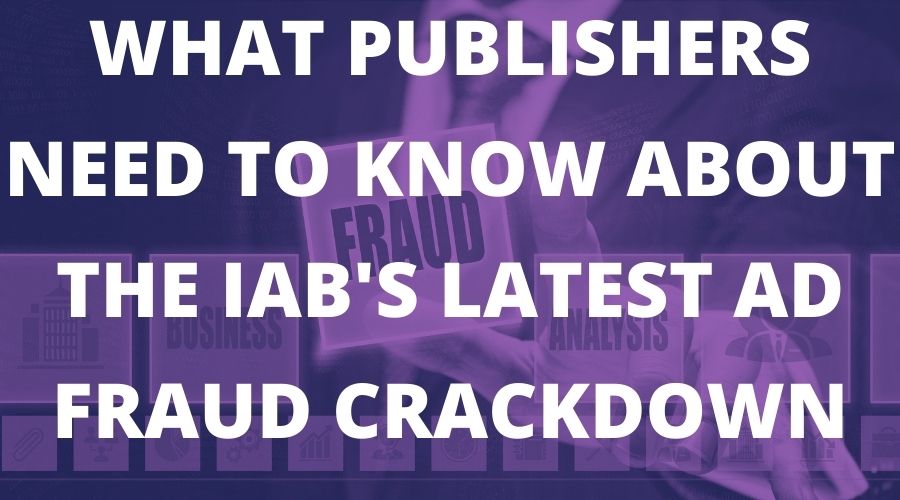This post was most recently updated on October 3rd, 2023
What is Ads.txt?
The Interactive Advertising Bureau (IAB), the industry body for digital advertising, introduced ads.txt (ads standing for Authorised Digital Sellers) to increase transparency in programmatic advertising.
Ads.txt files placed on the root domain of publisher sites show exactly which sellers a publisher has authorized to fill their inventory, and therefore give brands and advertisers more confidence in the authenticity of the inventory they are buying.
Programmatic buyers and advertisers can match the information in the publishers’ ads.txt file with the bid offered to them to make sure the seller is authorized to sell that inventory, and that their purchase of inventory will result in a genuine impression.
We go into more detail on ads.txt and how to create it here.
What are the limitations?
Ads.txt relies on publishers labeling their authorized sellers correctly. In some cases, publishers are incorrectly told to mark lines as DIRECT rather than RESELLER in order to try and get higher bids from buyers (buyers usually bid higher from direct publishers).
This mislabelling can also be inadvertent of course, if publishers do not understand the distinction between the two categories, or make a mistake while labeling their ads.txt lines.
In conjunction with ads.txt, the IAB also has introduced app-ads.txt, the mobile app version of ads.txt, and ads. cert, which uses a certified signature on a bid request to confirm authenticity.
However, the costs of implementation and continued compliance with these initiatives are still an issue for some businesses.
What is IAB proposing to do?
The new initiatives are mainly centered around closing existing loopholes with the current technologies and creating more openness around the labels used in ads.txt and why they are so important.
Studies have shown that a considerable number of ads.txt files contain errors, mislabelled rows, or outdated information, and that smaller companies do not have the time or expertise to update their ads.txt or ads.cert files regularly, clearing out outdated rows, or updating account IDs.
The IAB will be drafting new guidelines showing publishers how to use and how to optimize ads.txt and the importance of doing so.
In addition, a new digital supply chain audit is planned by the Association of National Advertisers (a US-based trade body) to investigate the flow of ad spends and how much money is being effectively skimmed off the top.
In the UK, a 2020 study by PricewaterhouseCoopers and the Incorporated Society of British Advertisers (ISBA) found that 15% of ad spends were simply vanishing; the money spent by advertisers was not going to ad creators, distributors, and publishers but elsewhere.
What should publishers do?
Publishers should commit to a regular audit of their ads.txt file and keep abreast of the new initiatives. If you stop working with an advertiser or agency, remove their entry from your ads.txt.
Cracking down on fraud not only means that a higher percentage of ad spends will go to publishers, but it makes the digital ad space more attractive for advertisers to invest in, increasing revenues for all.
With over ten years at the forefront of programmatic advertising, Aleesha Jacob is a renowned Ad-Tech expert, blending innovative strategies with cutting-edge technology. Her insights have reshaped programmatic advertising, leading to groundbreaking campaigns and 10X ROI increases for publishers and global brands. She believes in setting new standards in dynamic ad targeting and optimization.
